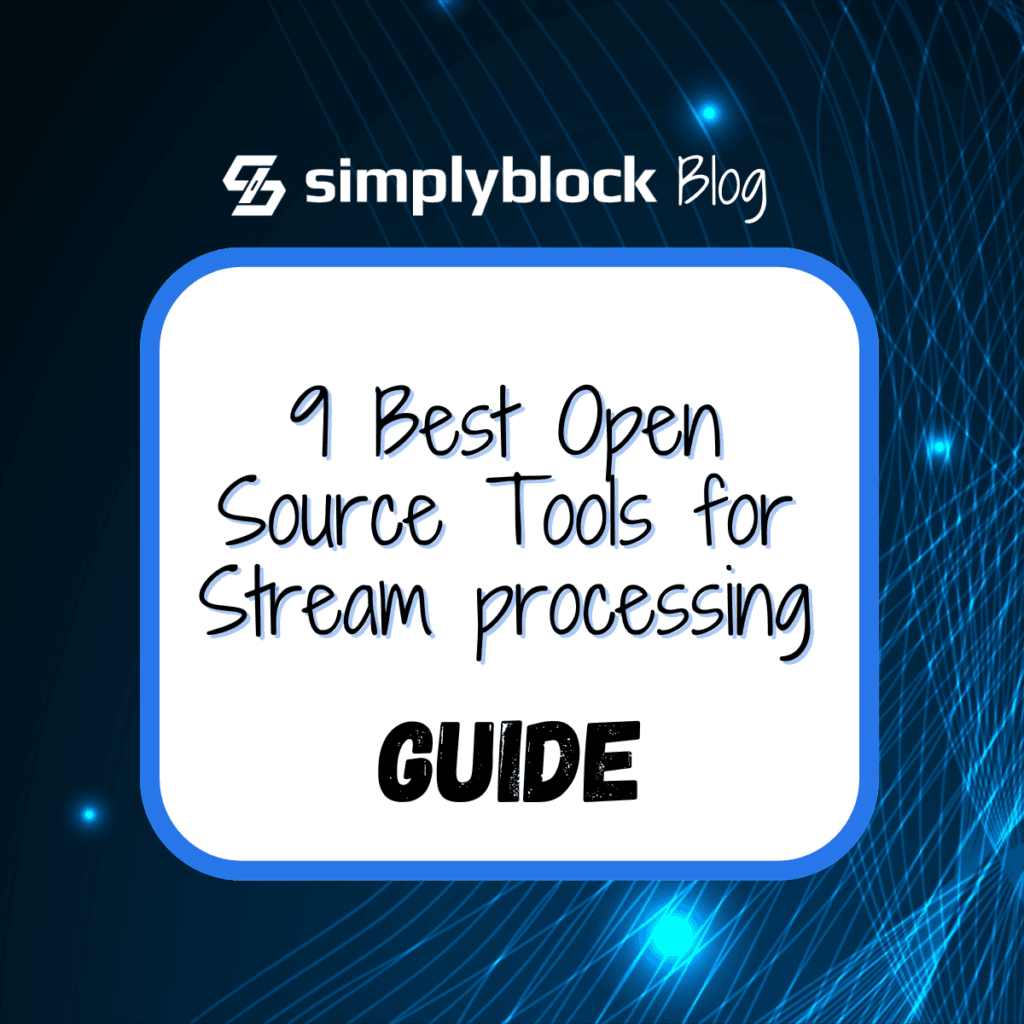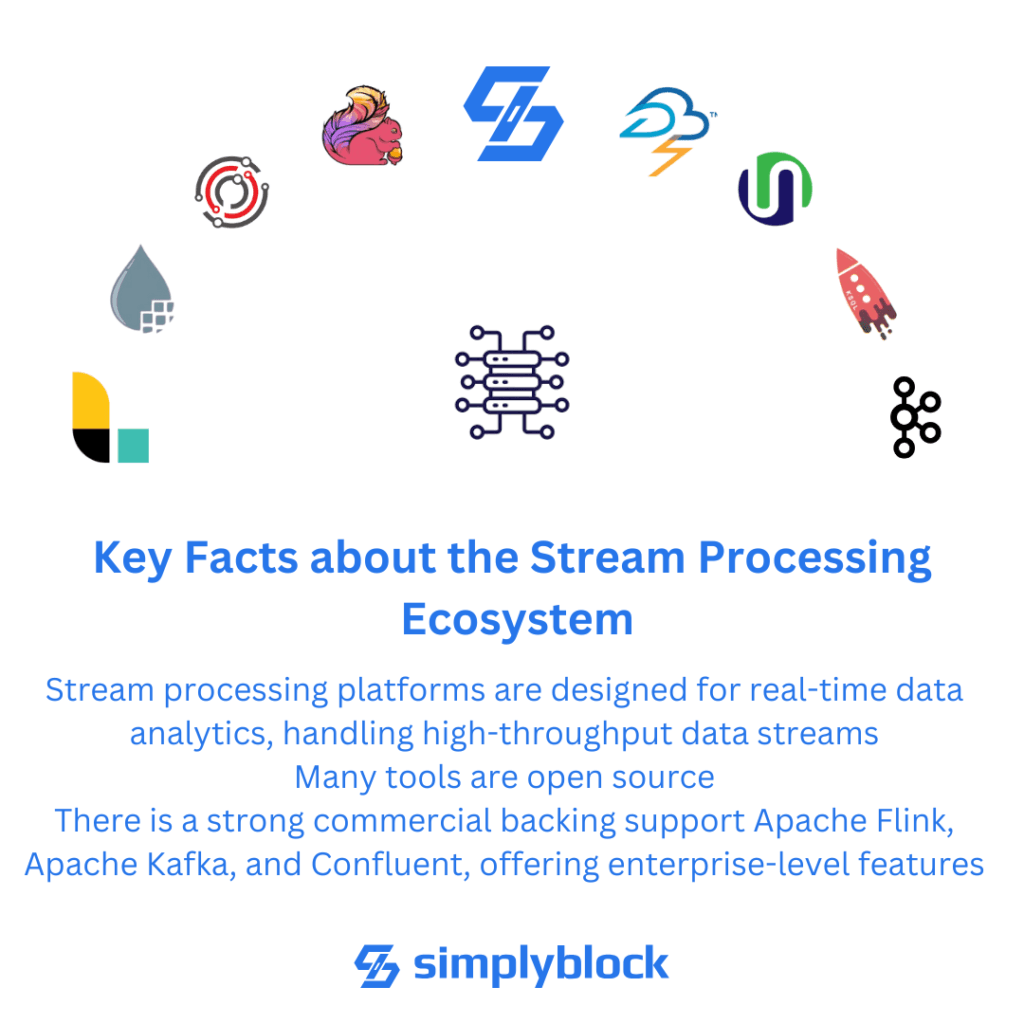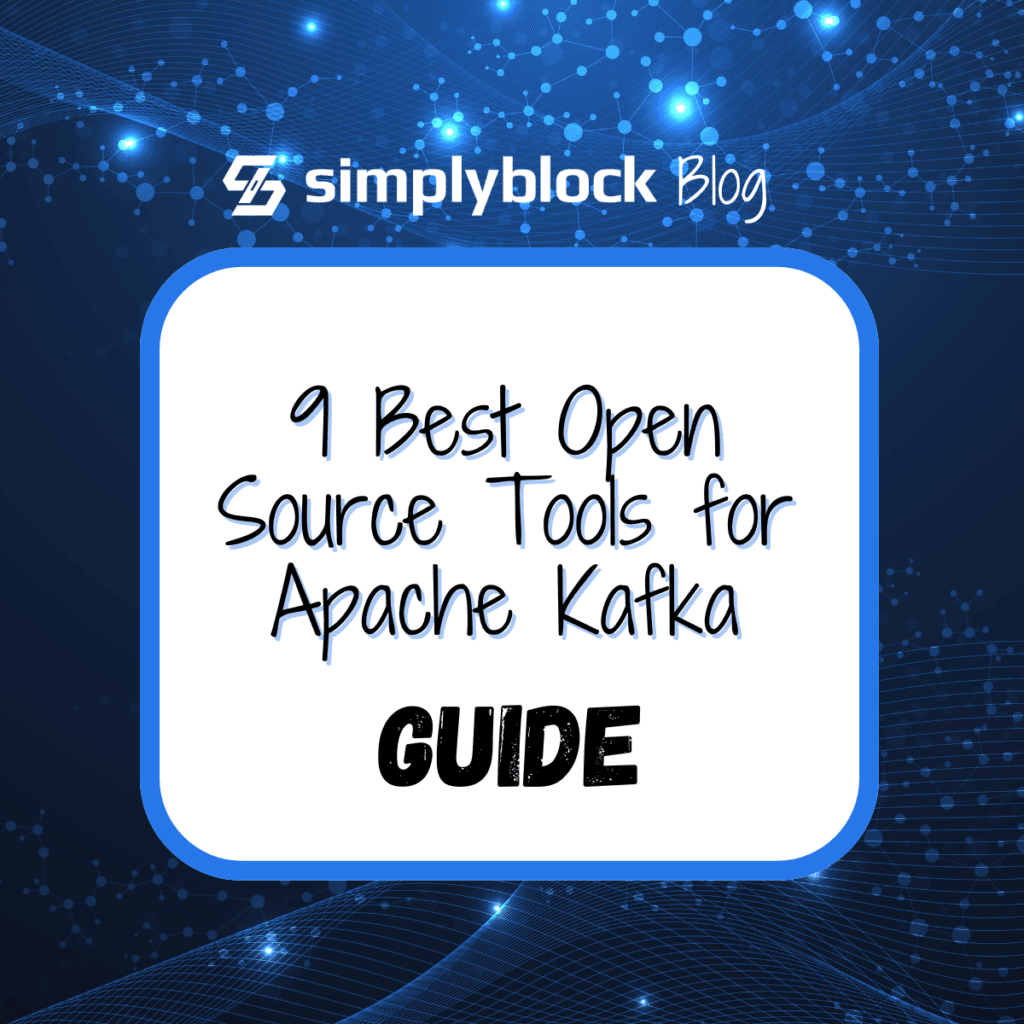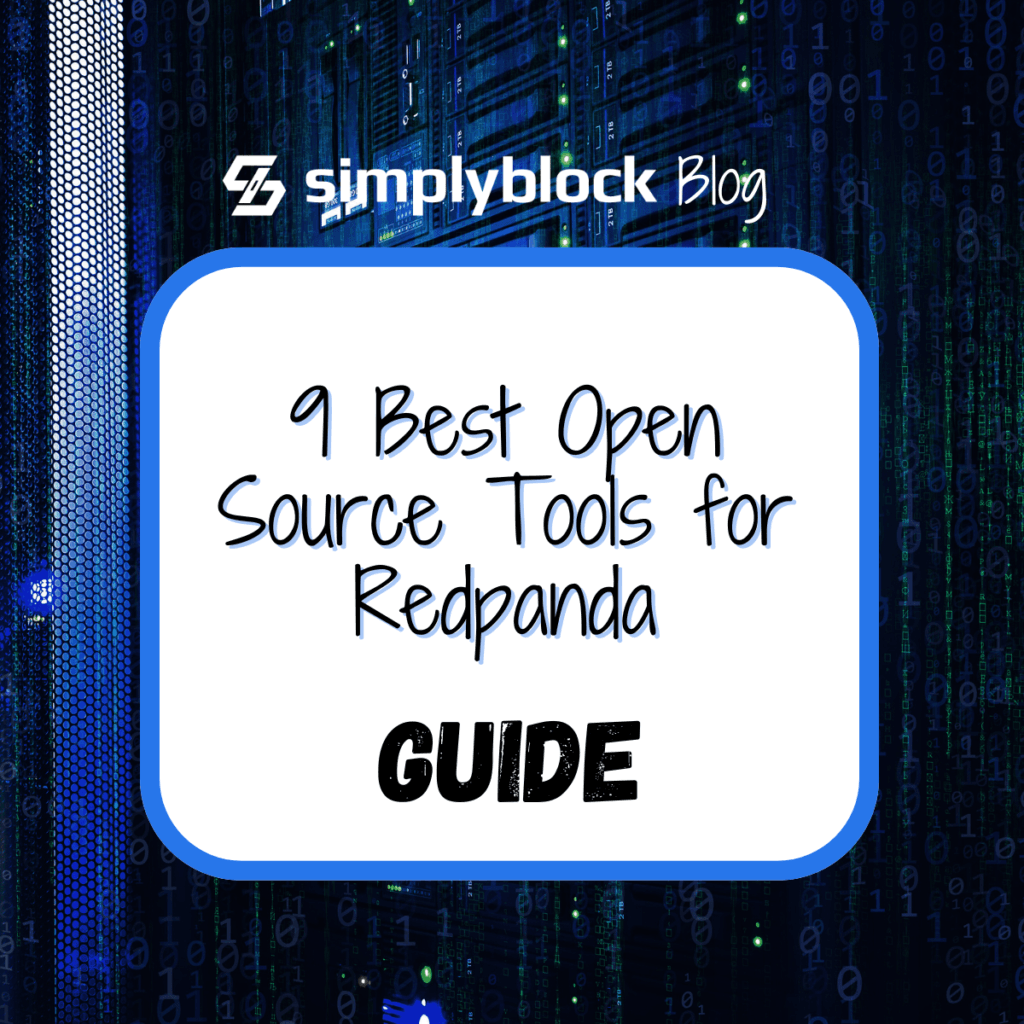
What is Stream Processing?
The rise of stream processing has fundamentally changed how businesses handle real-time data. With the ability to process and analyze continuous streams of data, organizations can make faster, data-driven decisions. Open-source tools have become essential for stream processing, offering powerful solutions to ingest, analyze, and act on data in real time.
These tools are critical for optimizing workflows, improving efficiency, and ensuring that businesses stay competitive in a data-driven landscape.
What are the best open-source tools for your stream processing setup?
As the demand for real-time data analysis grows, so does the need for robust and reliable open-source stream processing tools. Developers and engineers are constantly on the lookout for tools that can handle massive volumes of streaming data efficiently.
In this post, we’ll explore nine must-know open-source tools for optimizing your stream processing environment.
1. Apache Kafka
Apache Kafka is a distributed event streaming platform used by thousands of companies for building high-performance data pipelines, streaming analytics, and real-time applications. Kafka is well-suited for handling high-throughput, low-latency data streams, and it supports fault tolerance by replicating data across a cluster. It’s the backbone of many modern stream processing architectures.
Scaling Kafka clusters? Simplyblock enhances throughput and durability with Kubernetes-native, low-latency storage optimization.
2. Apache Flink
Apache Flink is a stream processing framework for real-time and batch data processing. Its powerful stream-first approach allows it to handle event-time processing and out-of-order data, making it ideal for applications that require accurate, real-time insights. Flink is widely used for complex event-driven applications and real-time analytics.
Running stateful Flink jobs? Simplyblock ensures storage resilience and optimizes storage resource allocation for dynamic stream processing workloads.
3. Apache Storm
Apache Storm is a distributed real-time computation system. It processes unbounded streams of data in a fault-tolerant and horizontally scalable manner. Storm is often used for real-time analytics, machine learning, and continuous computation, making it a valuable tool for organizations requiring high-performance stream processing.
Storm processes data in real-time—simplyblock helps maintain performance stability and scales storage infrastructure based on workload patterns.
4. Apache Samza
Apache Samza is a stream processing framework designed to handle massive volumes of data. Developed by LinkedIn, Samza integrates seamlessly with Apache Kafka and Hadoop, providing robust state management and fault tolerance. Its ability to process real-time streams with low latency makes it a key tool in the stream processing ecosystem.
5. NiFi
Apache NiFi is a dataflow automation tool that supports real-time data stream processing. It allows you to automate the movement of data between systems with ease, enabling users to build complex data pipelines. NiFi’s user-friendly interface and powerful features make it ideal for managing data flows in real-time applications.
Moving data with NiFi? Simplyblock boosts dataflow reliability with intelligent storage management and automated scaling behind the scenes.
6. StreamPipes
StreamPipes is an open-source Industrial IoT (IIoT) analytics platform for processing data streams from various sources. Its easy-to-use pipeline editor allows users to set up stream processing pipelines without writing code. StreamPipes is ideal for businesses looking to process IoT data streams in real time, providing fast insights into sensor data.
Building IIoT pipelines with StreamPipes? Simplyblock ensures fast, resilient ingestion speed and storage to support real-time industrial insights.
7. KSQL (Confluent)
KSQL, a component of the Confluent Platform, is an open-source, SQL-based stream processing engine built on Apache Kafka. It allows developers to write queries that continuously transform and analyze data as it’s ingested. KSQL is widely used for building real-time analytics applications, anomaly detection, and monitoring systems.
8. Logstash
Logstash, part of the Elastic Stack, is an open-source tool for collecting, parsing, and storing data from various sources in real-time. It’s highly flexible and can integrate with a wide range of systems. Logstash’s real-time processing capabilities make it an essential tool for managing large data streams and transforming them into meaningful insights.
9. Esper
Esper is a lightweight, high-performance event stream processing engine that allows you to query streams of events using a SQL-like language. It’s designed for applications where low latency and high throughput are critical, such as financial services, telecommunications, and logistics. Esper excels at detecting patterns and trends in real-time data streams.

Why Choose simplyblock for Stream Processing?
Stream processing platforms excel at handling real-time data analysis, but their performance and reliability ultimately depend on proper infrastructure configuration and resource management.
This is where simplyblock’s intelligent orchestration creates unique value:
- Intelligent Infrastructure Optimization: Simplyblock automatically optimizes your stream processing infrastructure across different frameworks (Kafka, Flink, Storm), ensuring optimal performance while reducing operational complexity. The platform handles resource allocation and scaling based on workload patterns.
- Cost-Efficient Resource Management: Simplyblock’s intelligent resource orchestration helps reduce infrastructure costs while maintaining performance. The platform automatically optimizes resource utilization across your streaming stack, preventing over-provisioning while ensuring processing power where needed.
- Simplified Enterprise Management: The Kubernetes-native integration means you can deploy and manage stream processing workflows through standard practices, while simplyblock handles complex infrastructure optimization behind the scenes. Built-in monitoring and automated maintenance ensure reliable stream processing operations.
How to Optimize Stream Processing with Open-source Tools
This guide explored nine essential open-source tools for stream processing, from Apache Kafka for high-performance data pipelines to Esper for complex event processing. While these tools excel at different aspects of stream processing – Flink for stateful processing, Storm for real-time analytics, and Samza for scalability – proper implementation and configuration remain crucial.
Tools like NiFi and StreamPipes simplify pipeline creation, while KSQL enables SQL-based stream processing, making real-time analytics more accessible.
If you’re looking to streamline your stream processing operations, simplyblock provides comprehensive solutions that integrate seamlessly with these tools, helping you get the most out of your real-time data pipelines.
Questions and Answers
Top open-source tools include Apache Kafka, Apache Flink, Apache Pulsar, Redpanda, and Spark Streaming. These tools enable real-time data processing across distributed systems, ideal for event-driven applications, monitoring, and log analysis at scale.
Stream processing platforms are I/O intensive and require fast, persistent storage to avoid data loss or backpressure. For high-throughput use cases, combining tools like Kafka or Flink with NVMe over TCP can dramatically reduce latency.
Yes, Kubernetes provides autoscaling and high availability, which are ideal for stream processing. To ensure persistence and durability, using Kubernetes-native storage volumes is crucial for data consistency and recovery.
Use Prometheus and Grafana for metrics, along with native tools like Flink Dashboard or Kafka Manager. Monitoring ensures your stream processing system maintains low latency and high throughput—especially when integrated with distributed storage.
Absolutely. Software-defined storage provides scalable, high-performance storage on commodity hardware. It offers flexibility and resiliency, making it ideal for dynamic, high-ingest workloads like Kafka and Pulsar in modern cloud environments.





